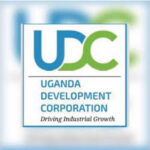Job Description
JOB DETAILS:
Knowledge, Skills & Competences
• Strategic Planning
• Relationship and Stakeholder Management
• Customer Centricity
• Business Acumen
• Analytical and Reporting
• Communication
• Digital Fluency
• People Management
• Project Management
Responsibilities
Main purpose of the job
• Risk is the potential that events, expected or unexpected, rnay have an adverse impact on the Bank’s capital and earnings. The Bank, in its normal course of business takes calculated risks. Initiatives, business growth, new products, improved technology-based services, and the global integration of banking give rise to the necessity of measuring, monitoring, and minimizing the risks assumed by the Bank.
• Country Risk Management, through the Board Committees, is an independent risk function which seeks to provide assurance to a variety of stakeholders that risks are appropriately managed across product groups and regions and that the institution’s risk is within its stated tolerance levels.
• Provide leadership, coaching and talent management to the Country Risk team.
• Embed a sound risk management programme by putting in place an effective Country Risk Management framework through provision of coaching and guidance to respective teams.
• The Country Risk Management function is responsible for providing independent oversight of policies, procedures and standards concerning the measurement, monitoring and control of market risks (both trading and non-trading), trading credit risk and trading operational risk portfolios.
• Responsible for enhancing and integrating the function for Bank-wide Risk Management; to build capacity and the ability to identify, measure, monitor and control the underlying risks – mainly Strategic, Credit, Liquidity, Interest Rate, Price, Foreign Exchange Rate, Operational, Reputational and Regulatory – that the Group will continue to face.
Key responsibilities
Country Risk Management
• Establish and disseminate comprehensive Risk Management Programmes for the bank.
• Provide leadership, coaching and talent management to the Country Risk team.
• Embed a sound risk management programme by putting in place an effective Country Risk Management framework through provision of coaching and guidance to respective teams.
Active Board and Senior Management Oversight
• Review and monitor reporting to the Board Risk Management Committee/ Chief Executive Officer on the risk profile of the bank.
• Propose mitigation measures for all risks identified to the relevant Board Committee and recommend new risk parameters to be set up.
• Review of Board Committee papers and prepare Risk management committee papers.
• Attend the following meetings: Risk Management Committee; Board Credit Committee; and Board Asset and Liability Committee.
Adequate Policies Procedures and Limits
• Review and standardize Risk Management Policies and Procedures and embed risk management processes across the Bank
• Formulate new policies and procedures for new products, and for guidelines issued by the regulatory authorities and ensure that they are approved by the Board of Directors.
Adequate Risk Monitoring and Management Information Systems (MIS)
• Coordinate with functional/ branch/ unit heads and catalyze assessment of functional risks within the bank.
• Conduct Risk Team meetings and facilitate implementation and review of the action points arising out of the meetings.
• Monitor risk assessment matrix for credit, market, and operational functions to address all risks including operational, liquidity, credit, and market risks.
• Align Risk management processes with market opportunities available to the bank.
Adequate Internal Controls
• Facilitate integrated risk-based audit and measure risks where needed and suggest mitigants.
• Establish a comprehensive and sound Risk Management culture that will enable management to understand and monitor the risks faced by the bank, to be achieved through active participation in monthly/periodic management committee meetings.
• Enhance monitoring capabilities and enhance overall operational efficiencies within the bank.
Credit Risk Management
Credit Assessment
• Participate in the formulation of bank credit policies and lending practices in such areas as large exposures, credit concentration, sectoral exposure, maturity of securities, etc.
• Support the credit team with periodic credit assessment and portfolio management.
• Establish, design and review credit grading systems and establish quality assurance measurements.
• Pursue measures to improve lending skills and standards – such as staff training.
• Develop a regional data bank on industry analyses /market intelligence and liaise with the Credit Reference Bureaus to review and initiate action to enrich and modify the overall credit risk profile of the bank.
• Update the risk profile to be submitted to the CEO and the respective Board on a quarterly basis with findings and recommendations on way forward.
Credit Control / Monitoring
• Implement the Bank’s Credit Policy and Procedures.
• Over see the implementation of the systems and controls as they relate to credit functions at all times.
• Monitor the prevailing trends and quality of the credit portfolio in the bank, through various management report such as Arrears and Non
Performing Assets Accounts Reports.
• Monitor credit risk to ascertain the overall health of each asset and overall portfolio and confirm that exposures are in line with the bank’s policy guidelines to ensure the quality of the credit portfolio.
• Review HR capacities in relation to credit functions in all the units and in liaison with the Human Resources Department, identify training needs and recruitment of staff where necessary.
• Participate in the general management of the Bank and in this regard streamline the credit operations in the Bank through actively participation in re-engineering systems and controls review programmes.
Credit Administration
• Ensure that the process of disbursement and custody of security documentation is in line with Policies and procedures and compliant with the Credit disbursement checklist.
Debt Recovery
• The Risk Department will monitor and report through the Head – Risk and discuss the Credit Risk findings at the Management Credit Risk Committee (MCC). In its monthly meetings, MCC will review the Key Credit Risk Indicators and devise control mechanisms for controlling various Credit Risks in the Bank.
• The Committee will also recommend suitable mitigants, policies and processes etc. to the Board Credit Committee (BCC) for management of Credit Risk.
Market Risk
• Identify Market risk factors (equity, interest rate, currency, and commodity} and develop approaches of strategies to address them.
• Monitor ALM risks and review of the Liquidity Ratio, Rate sensitivity gaps, currency-wise gap analysis, net margins. Value at Risk (VaR), trading activities and impact analysis in a worst-case scenario to test the Bank’s resilience
• Monitor and report the ALM risk findings to the ALCO. In its monthly meetings, ALCO wilt review the Key ALM Risk Indicators and devise control mechanisms for controlling various Operational Risks (ORs) in the Bank. The Committee will also recommend suitable policies etc. to the Board Asset Liability committee (BALCO) for management of ALM Risk.
Reputational Risk
• Assess and recommend mitigating measures for reputational and regulatory risks identified to the Cross functional Communication Committee. The committee to discuss and report the issues by way of minutes to the BRMC.
Operational Risk
• Assess and implement effective operational risk management in branches and departments as a whole
• Establish adequate safeguards to protect against Operational Risks including internal fraud, external fraud, and market manipulation, execution failures through data entry, business disruptions, failed mandatory reporting, and negligence.
• Monitor and report the Operation Risk (OR) findings tc the Operational Risk Committee (ORCO).
• In its monthly meetings, ORCO will review the Key Operating Risk Indicators and devise control mechanisms for controlling various ORs in the Bank. The Committee will also recommend suitable policy amendments for management of Operational Risk,
• Review the quality of reporting on critical functional areas – Credit, Treasury, Operations, and Information Communication Technology- Regulatory reports and external audit reports.
• Ascertain the risks through the regulatory reports, external and internal audit, inspection reports and close the risk areas identified.
Human Resources
• In liaison with the Human Resources Department coordinate staff appraisal programmes and overall supervision of staff to ensure that business targets of the Department are achieved.
• Prepare and manage Department’s establishment, staff cost, and budgets to ensure that they are within the overall budget.
• In liaison with the Human Resources Manager, identify the appropriate on the job training and development programmes for staff being supervised.
Qualifications
• A Master’s degree in Business Administration or a related degree.
• A Bachelor’s degree in Business Administration, Commerce, Statistics, or a related subject
• Risk Management or Accountancy professional qualification such as Financial Risk Management (FRM), Chartered Financial Analyst (CFA), Association of Chartered Certified Accountants (ACCA) or a related field
• Membership to a recognized relevant professional body.
Details of experience
• A minimum of 10 years of managing a Risk function in a Commercial Bank
• Five (5) years of senior leadership
• Demonstrable experience leading a Risk department in Commercial Bank, with cross boarder group reporting responsibilities.
• Practical experience of collection and analysis of information critical for risk assessment and management.
• Working experience of banking systems







